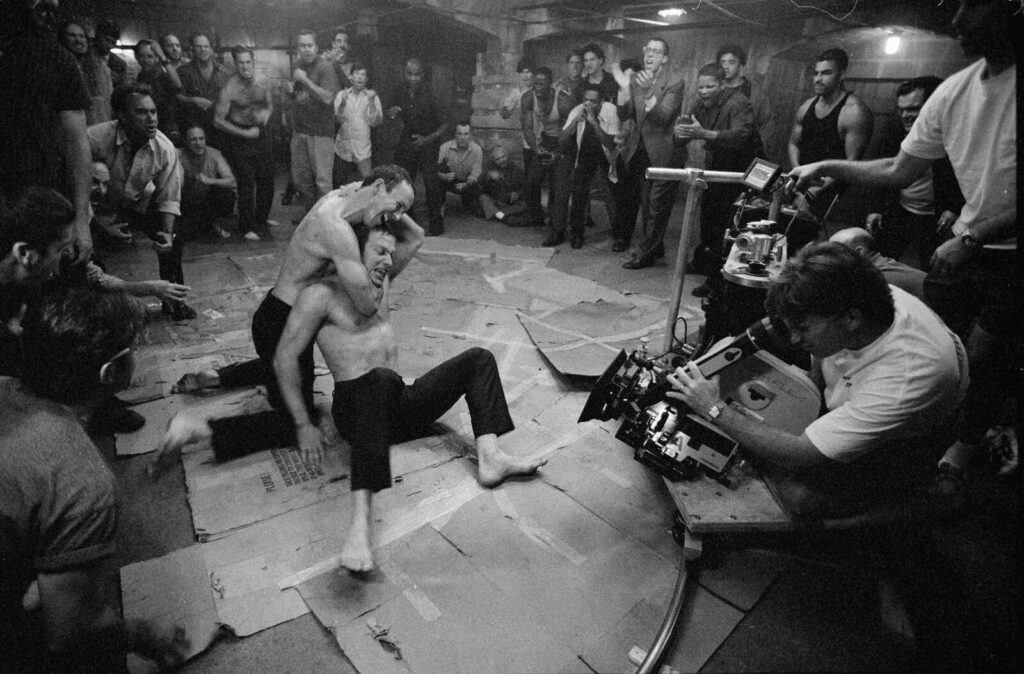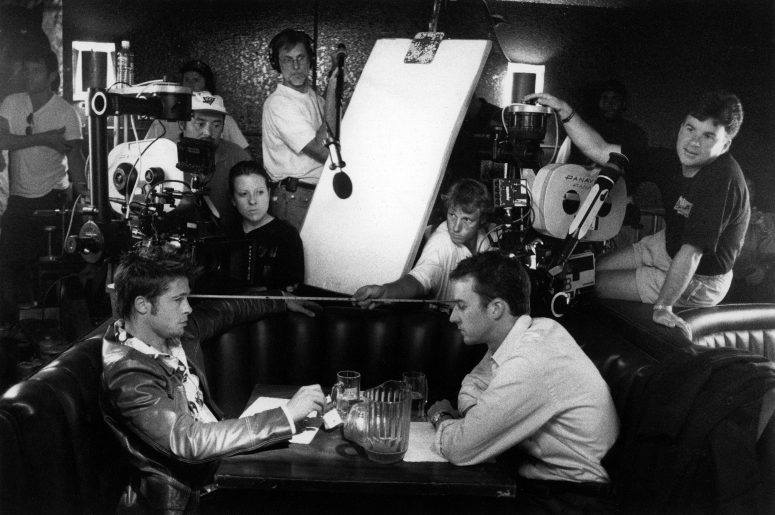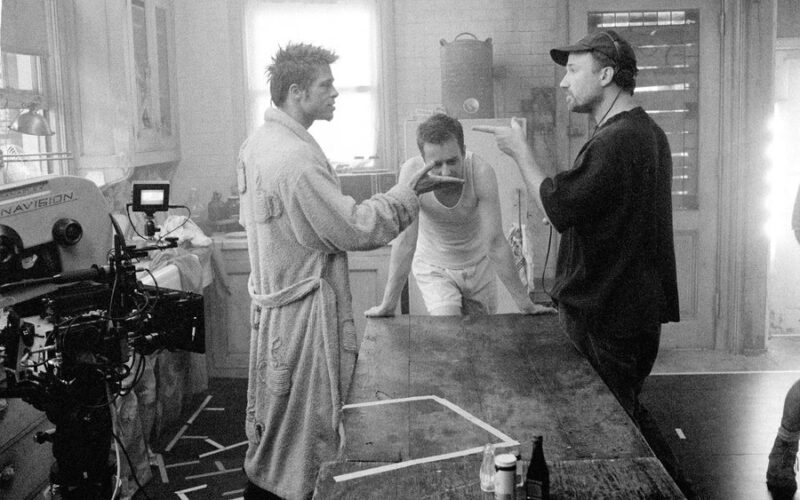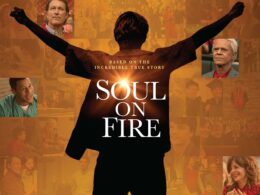As we reflect on Fight Club‘s 25th anniversary, its impact feels more relevant than ever, with its biting commentary on identity, capitalism, and societal expectations still resonating with new generations of viewers. The film’s stark visuals, dark humor, and provocative themes have cemented its place as one of the most influential films of the late 20th century.
A Film Ahead of Its Time
When Fight Club was released in 1999, it confused as many viewers as it captivated. Critics were divided, with some dismissing it as nihilistic or glorifying violence, while others saw it as a brilliant satire of modern life. In the era of Y2K panic and a dot-com boom that was still in full swing, Fight Club challenged viewers to question the very foundations of their existence in a consumer-driven world. It was a film about men who felt emasculated by their day jobs, their possessions, and their roles in a society that treated them as consumers rather than individuals.
At its core, Fight Club is about identity and the search for meaning in a world that reduces people to their bank accounts, job titles, and material possessions. Edward Norton’s unnamed protagonist, often referred to as the Narrator, embodies this existential crisis. Trapped in a dead-end white-collar job, he spends his nights obsessively purchasing IKEA furniture, trying to fill the void in his life with things. “I had become a slave to the IKEA nesting instinct,” he laments, summing up the frustrations of an entire generation.

The Rise of Tyler Durden
Enter Tyler Durden, played by Brad Pitt in one of his most iconic roles. Tyler is everything the Narrator is not – bold, rebellious, and free from the constraints of modern life. He’s a living, breathing rejection of societal norms. As the film progresses, Tyler becomes the embodiment of the Narrator’s inner rage and dissatisfaction. Together, they form Fight Club, an underground movement where men beat each other senseless in the pursuit of something real, something that transcends the artificiality of their everyday lives.
The film’s tagline, “The first rule of Fight Club is: You do not talk about Fight Club,” has become ingrained in popular culture, often used humorously in other contexts. However, the underlying message is much darker: the characters in Fight Club are seeking validation and control in a world that has left them feeling powerless. The physical violence of the club serves as a temporary outlet for deeper emotional wounds.
Capitalism and Consumerism on Trial
One of the film’s most enduring aspects is its ruthless takedown of consumerism. Tyler Durden’s philosophy is one of radical anti-capitalism. “The things you own end up owning you,” he says, a line that has become synonymous with the film’s broader themes. Tyler represents the rejection of materialism, urging the Narrator to let go of his attachment to possessions and embrace chaos instead. His anarchistic tendencies culminate in the formation of Project Mayhem, a group intent on tearing down the financial institutions that control modern life.
Viewed through a contemporary lens, Fight Club feels eerily prophetic. The themes of income inequality, dissatisfaction with corporate jobs, and a disillusionment with consumer culture are more relevant than ever. In an age where people are increasingly disconnected from traditional social structures and are defined by their online presence and material wealth, Tyler’s radical rejection of the system still resonates deeply. The rise of minimalist movements, critiques of capitalism, and the gig economy’s effects on individual purpose echo the frustrations portrayed in Fight Club.

Subverting Masculinity
While much has been written about Fight Club’s critique of consumerism, its exploration of masculinity is just as profound. The film is often misinterpreted as a glorification of toxic masculinity, with critics arguing that the violence of Fight Club is a return to primal, hyper-masculine instincts. However, a deeper reading reveals that Fight Club is, in fact, a critique of traditional masculinity and how societal expectations of manhood have become just as commodified as the products we consume.
The men of Fight Club feel emasculated by their lack of control over their lives. They live in a world that measures success by material wealth, and in the absence of real power, they turn to violence as a way to reclaim their sense of manhood. Tyler’s rejection of the corporate world and his embrace of chaos and destruction is less about reclaiming traditional male dominance and more about exposing the cracks in the facade of masculinity itself.
By the end of the film, the audience is forced to confront the destructive consequences of Tyler’s philosophy. The Narrator realizes that Tyler’s anarchistic vision is not a solution, but an extreme response to the very real disillusionment that modern men face. The film’s final act, where the Narrator literally shoots himself to rid his mind of Tyler, is symbolic of the need to reject both consumerism and the extremes of unchecked masculinity in favor of something more balanced and real.
A Visual Masterpiece
Of course, Fight Club wouldn’t be the masterpiece it is without David Fincher’s impeccable direction. Fincher’s distinct visual style is on full display, from the gritty, grimy underground world of Fight Club to the sterile, corporate spaces that the Narrator inhabits. The use of CGI, rapid editing, and the film’s dark, muted color palette contribute to its unique tone. Fincher, who had already proven his skill with films like Se7en and The Game, creates a visually arresting world that feels both hyper-realistic and surreal at the same time.
The film’s final scene – set to the haunting strains of The Pixies’ “Where Is My Mind?” – is one of the most memorable in cinema history. As buildings collapse in the background, the Narrator, having exorcised Tyler from his mind, holds hands with Marla (Helena Bonham Carter), finally free from the chaos he has created. The image of society literally crumbling as the Narrator looks on with a sense of calm is a fitting end to the film’s journey through the dark heart of modern life.
25 Years Later: A Lasting Legacy
As Fight Club turns 25, it remains a polarizing and thought-provoking film that continues to spark debate and analysis. Its critique of capitalism, exploration of identity, and subversion of masculinity feel as relevant today as they did in 1999. While some may still see it as an endorsement of violence and rebellion, a closer look reveals a film that challenges us to question the systems we live in, the roles we play, and the identities we construct.
At 25, Fight Club endures not just as a cult classic, but as a cinematic manifesto for a generation grappling with disillusionment. Whether you see it as a critique, a warning, or a darkly comic reflection of society, there’s no denying that Fight Club’s impact on film and culture is as indelible as the scars left by its underground fights.









